| | | | | | | Presented By Equinor | | | | Axios World | | By Dave Lawler ·Jun 14, 2021 | | Welcome back to Axios World. Hope you had a lovely weekend. - Tonight we'll catch you up on the summits in Europe, the political earthquake in Israel and more (1,735 words, 6 minutes).
New Arrival? Subscribe here. | | | | | | 1 big thing: Biden's billion-dose pledge doesn't add up | 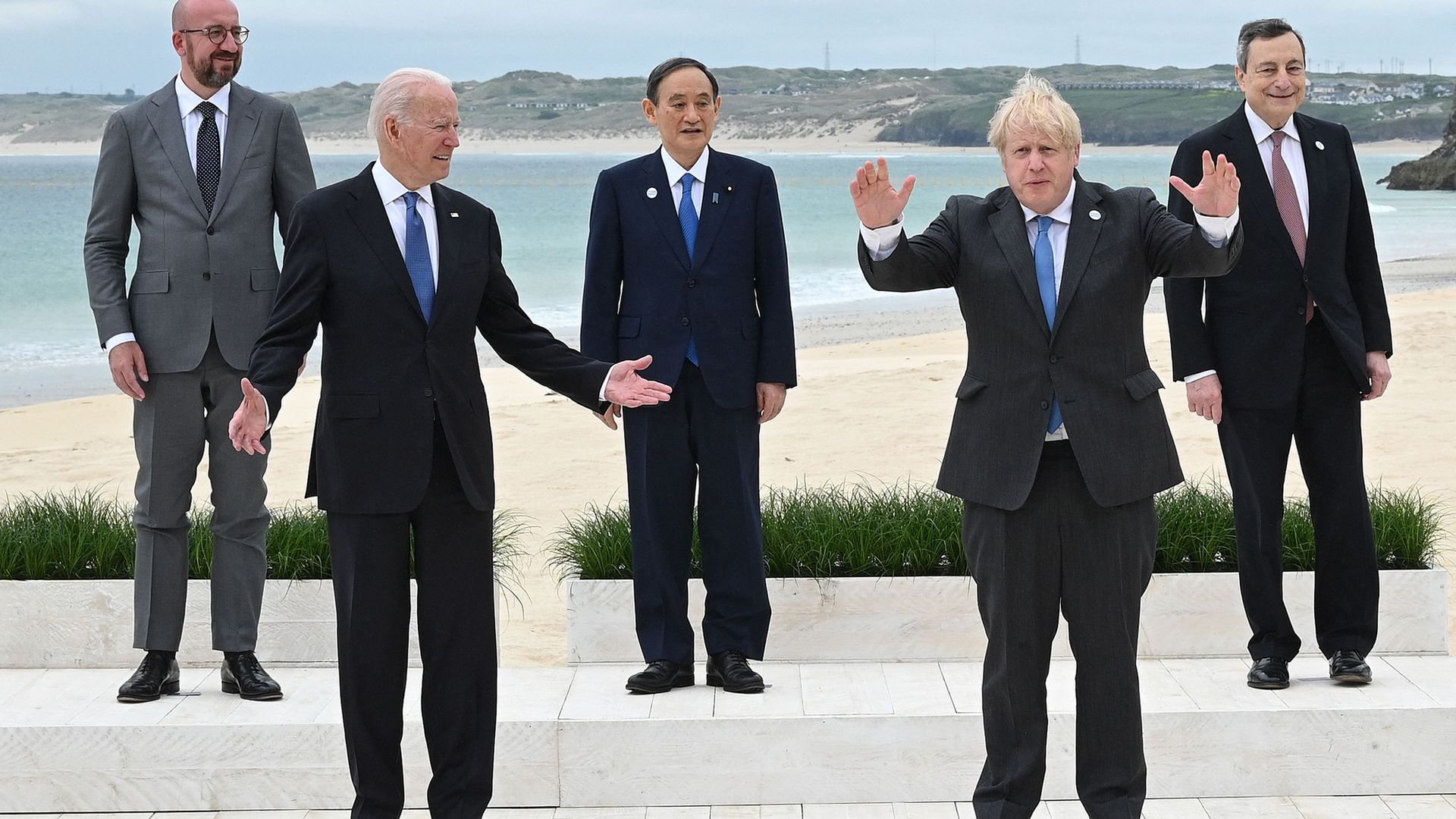 | | | Biden (front left) with other G7 leaders. Photo: Leon Neal/POOL/AFP via Getty | | | | President Biden claimed at the conclusion of the G7 summit that his plan to buy 500 million Pfizer doses to share with the world had "generated a commitment by the rest of our colleagues in the G7 that they would provide another half billion." Why it matters: The 1 billion-dose pledge was the headline announcement from the summit — a signal that America's return to the global table was producing results. But the numbers don't add up. Breaking it down: In addition to the U.S. commitment, the U.K. promised to donate 100 million doses over the next year while Canada promised 13 million (plus another 87 million to be purchased later, using funds already contributed to COVAX). - France had already promised to donate 30 million doses by the end of the year, and President Emmanuel Macron doubled that to 60 million.
- That's a total of 143 million new doses pledged over the course of the summit by countries other than the U.S., a fraction of the 500 million Biden and others in the administration claimed were "generated" by the U.S. pledge.
The joint communique released at the end of the summit seems to incorporate some pre-existing pledges to wind up with a promise that G7 countries will "share at least 870 million doses directly over the next year." - The document also says the G7 members will be "providing for one billion doses over the next year," without offering further details.
- The Biden administration has been trumpeting the 1 billion figure, with Secretary of State Tony Blinken calling it "a powerful demonstration of democracy delivering."
- Asked to explain how it was calculated, a Biden administration official told Axios it included "both financial contributions, converted to doses, and dose contributions."
Between the lines: There's a big difference between contributing money and doses. The WHO-backed COVAX initiative has been short of doses not because it lacks the money to buy them, but because it has been unable to sufficiently tap the global supply, much of which has flowed to rich countries like the G7 members. - Biden's pledge also involves some recycling: $2 billion of the $3.5 billion price tag will be covered by funds previously promised to COVAX, which would have otherwise been used to buy doses or fund their distribution.
What they're saying: The WHO has noted that the commitments fall well short of the 11 billion doses needed to end the pandemic, and aid groups and dignitaries leading the charge on vaccine sharing have lambasted them as far too modest. Former U.K. Prime Minister Gordon Brown, for example, called the 1 billion figure an "unforgivable moral failure." - Still, the U.S. pledge in particular is many times larger than what any rich country had previously committed.
- Biden said in his press conference at the end of the summit that the U.S. may be in a position to donate another 1 billion doses — beyond the 500 million committed by mid-2022 — "over 2022 going into 2023."
The bottom line: That timeline reflects just how long some around the world will be waiting for access. |     | | | | | | 2. Mixed signals from NATO on China |  | | | Macron (L) and Merkel at the NATO summit. Photo: Olivier Matthys/POOL/AFP via Getty | | | | NATO leaders view China's growing influence, military prowess and assertive behavior as "systemic challenges to the rules-based international order," according to a communique released Monday. Why it matters: It's the first time that NATO, which was founded in 1949 to confront the Soviet Union, has formally addressed the threat posed by China's military ambitions, Axios' Zach Basu writes. Yes, but: While attitudes toward China have been hardening in European capitals, German Chancellor Angela Merkel and French President Emmanuel Macron are among those cautioning against the idea that China is an adversary. - Macron quipped today that "in my book, China isn't part of the Atlantic geography, or maybe my map has a problem" — a statement that may say more than any communique about how the EU views the security challenge from China.
- NATO Secretary General Jens Stoltenberg tried to thread that needle today, warning that "China is coming closer to us" in terms of its military encroachment, infrastructure investment and cyber activities, but added that NATO is "not entering a new Cold War with China, and China is not our adversary, our enemy."
Between the lines: The communique references "Russia" 62 times, compared to just 10 times for "China" — a sign that NATO's main priority remains, for now, on Europe's eastern front. Biden trip roundup: - The G7 leaders made sweeping statements on climate but offered no specifics on key issues like climate finance and domestic coal consumption, Axios' Andrew Freedman writes.
- Biden and Turkish President Recep Tayyip Erdoğan both spoke positively about their meeting today, with Biden expressing confidence that U.S.-Turkey relations would improve. There were no policy breakthroughs on issues like Turkey's purchase of a Russian missile defense system.
- What's next: Biden's meeting with Vladimir Putin will take place on Wednesday in Geneva.
|     | | | | | | 3. Israel's immovable man is pushed aside | 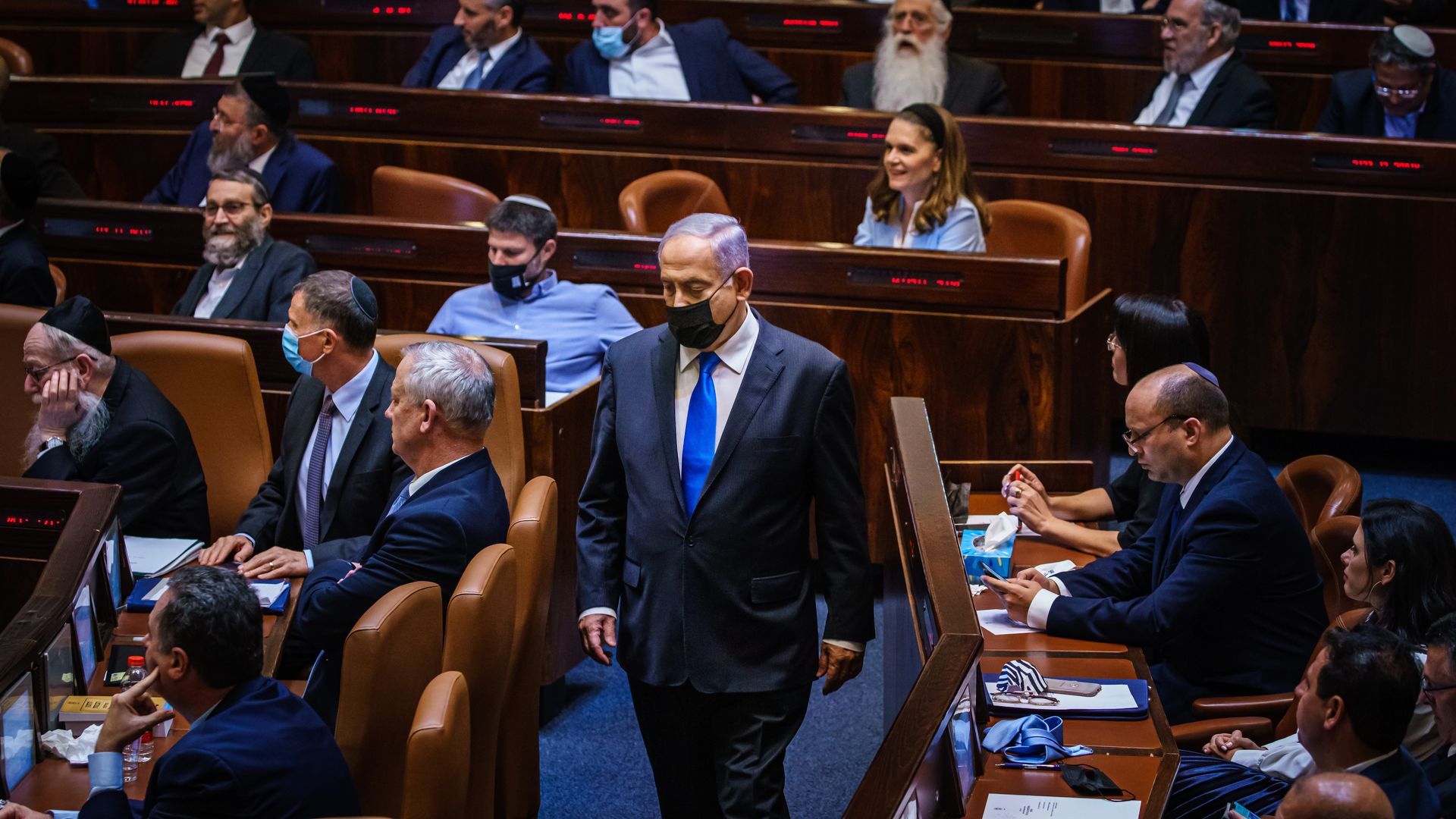 | | | Netanyahu gave up the prime minister's chair. Photo: Marcus Yam/LA Times | | | | Today marked a new political dawn in Israeli politics, which had been utterly dominated by Benjamin Netanyahu for 12 years. The big picture: Netanyahu shifted Israeli politics and society to the right, helped Israel punch above its weight internationally, oversaw a decade of economic growth and managed to improve relations with some countries in the region while de-emphasizing the Israeli-Palestinian peace process. - His critics say he pulled the country in an authoritarian direction, posing challenges to press freedom, the independence of the judiciary, and the prospects of a future Palestinian state. He's currently standing trial on three corruption charges.
- Israeli politics was deadlocked for the past two years — and four consecutive elections — over the question of whether Netanyahu should stay or go.
- Now he has gone, but not far. As the new opposition leader, he has promised to "wage a daily battle against this bad, dangerous left-wing government to topple it."
The other side: The government Netanyahu describes as "left-wing" is led by Naftali Bennett, who is just as hawkish as Netanyahu on Iran and even more hardline on some issues relating to Palestinian rights. - Bennett struck a power-sharing deal with Yair Lapid, a centrist, and an incredibly broad range of parties united by nothing more than their opposition to Netanyahu.
- Their government managed the smallest possible majority on Sunday, with 60 votes in favor, 59 against and one abstention.
- Netanyahu, meanwhile, used his last speech as prime minister to accuse Biden of endangering Israel's security by taking a soft line on Iran, and claiming Bennett would be too weak to stand up to Washington.
The bottom line: This is not a political obituary. Netanyahu is still a powerful player, and he could be prime minister again before too long. Go deeper: Bennett's history as a tech founder |     | | | | | | A message from Equinor | | How one company is helping speed up the energy transition | | | 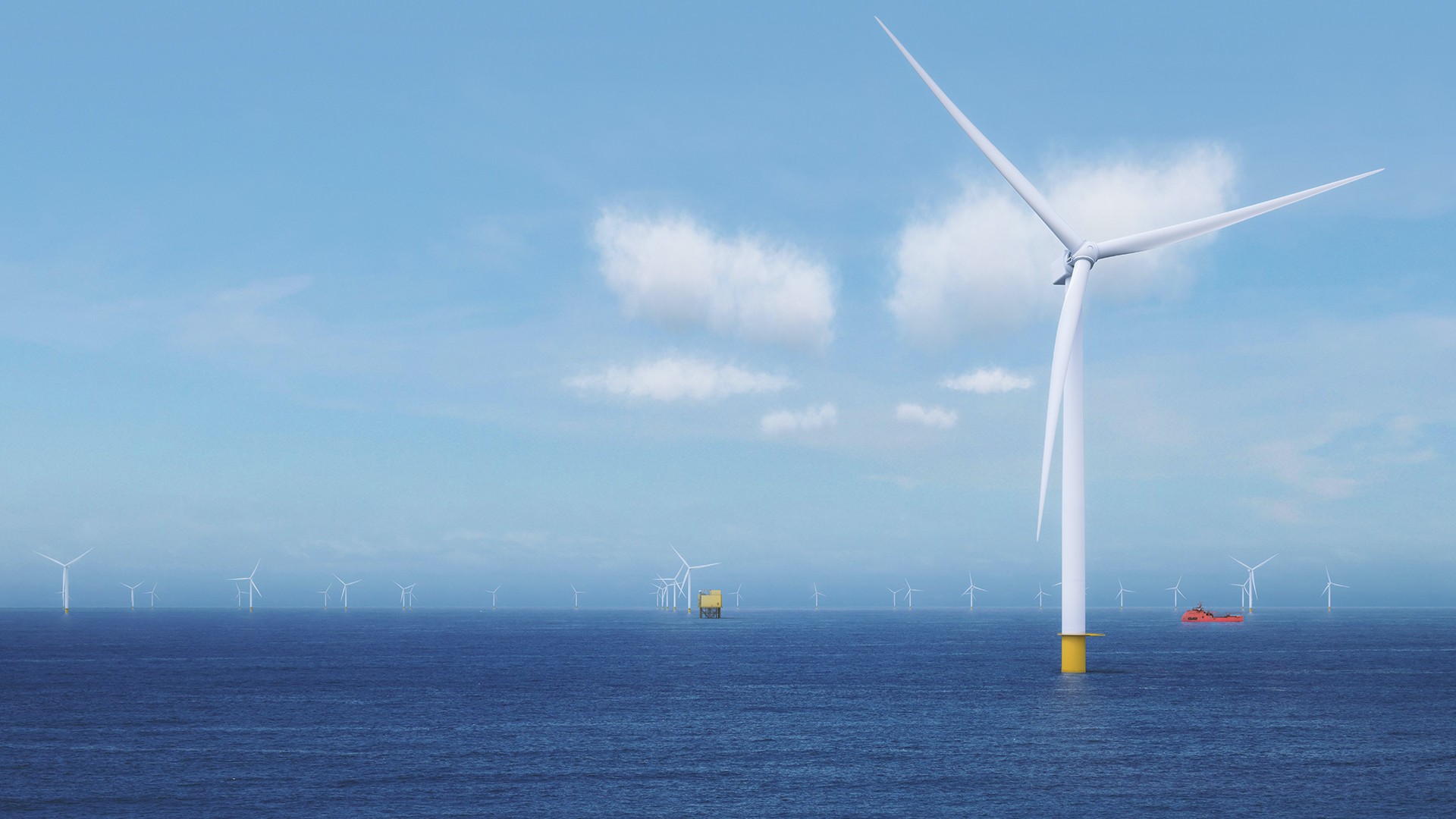 | | | | Equinor plans to power more than 1,000,000 homes in New York with homegrown, renewable energy. Why it's important: With a net-zero target for 2050, Equinor is pursuing the development of offshore wind projects in the U.S. and becoming a leader in the country's growing offshore wind industry. | | | | | | 4. State of the outbreak: Good news, bad news |  Data: Our World In Data; Chart: Axios Visuals 1. The U.K. today delayed the final phase in its reopening process by a month, to July 19. - The bad news: Despite a fast vaccine rollout, cases are spiking due to the emergence of the "delta variant," first discovered in India, which appears to be particularly contagious and potentially more deadly.
- The good news: Early findings suggest both the Pfizer and AstraZeneca vaccines are highly effective at preventing hospitalizations due to the delta variant, though they are somewhat less effective at preventing infections.
2. Novavax announced Monday that its vaccine was 90.4% effective at preventing infection and 100% effective at preventing severe disease in its Phase 3 trial. - What to watch: The Biden administration could export its doses from the U.S. company as it seeks to fulfill its goal of helping vaccinate the world, Axios' Yacob Reyes writes.
3. Indian states are starting to lift some restrictions as cases continue to fall dramatically (see the big dip for "Asia" in the chart above). - The bad news: Cases continue to tick upward in South America, which is currently home to some of the world's highest population-adjusted infection rates (particularly in Argentina, Colombia and Uruguay) and where the pandemic has simply never eased up.
4. Moscow's mayor ordered some workplaces to take a week off and imposed new restrictions on many other businesses on Saturday to help curb a surge in new coronavirus cases. - Only 13% of Russians have had at least one vaccine dose.
5. Brazilian President Jair Bolsonaro was fined, again, for violating COVID-19 protocols. |     | | | | | | Bonus: Where in the World? |  | | | Screengrab via Apple Maps | | | | Most of what you see here is a major international city, with the purple pin marking its business district. To the north — across an internal border — lies an even more populous city, marked with a red pin. Can you name them both? Scroll to the bottom for the answer. |     | | | | | | 5. Global news roundup | 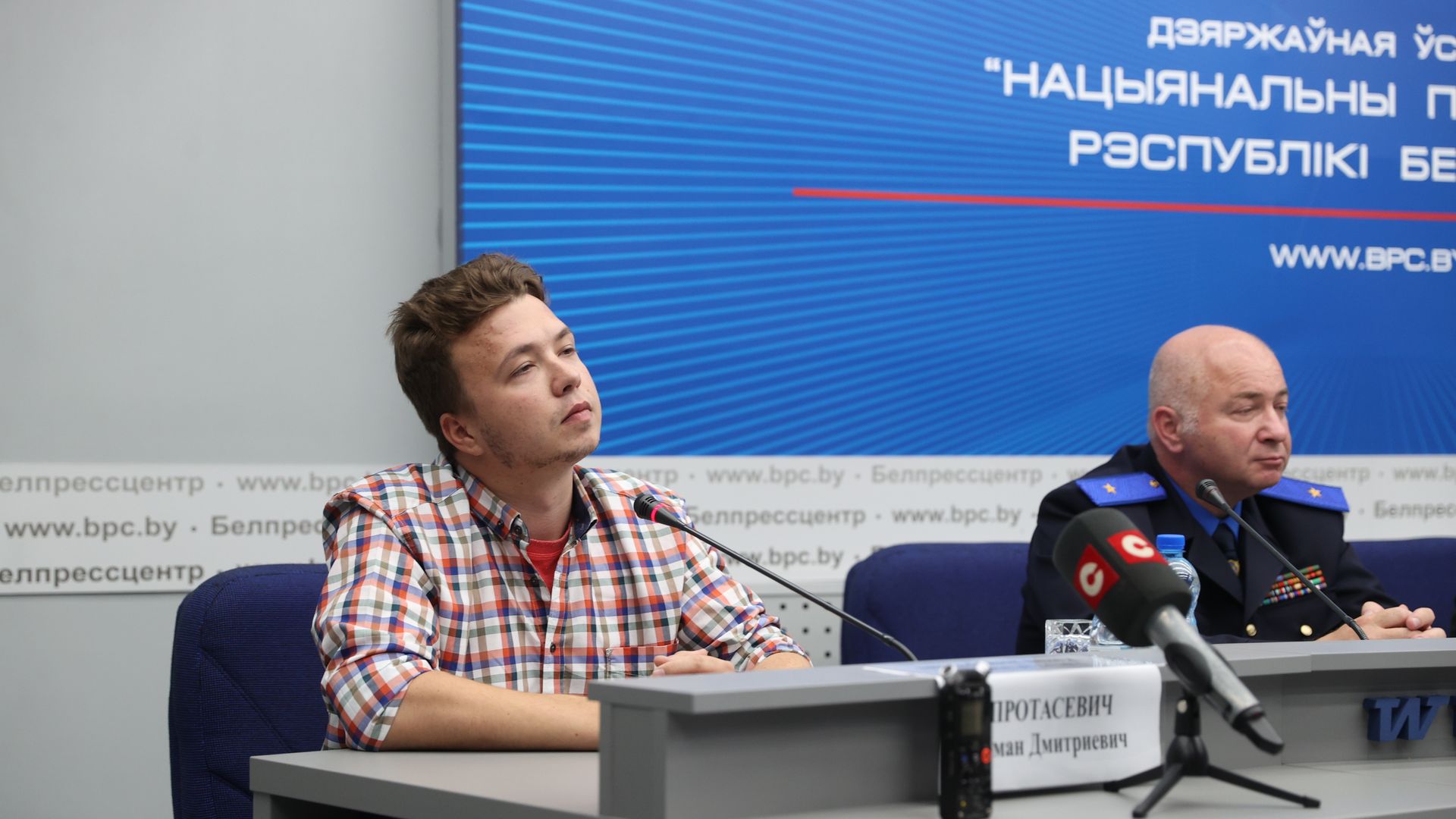 | | | Roman Protasevich (L) at today's press conference. Photo: Anadolu Agency via Getty | | | | 1. The trial of ousted Myanmar leader Aung San Suu Kyi began today, with the junta presenting a range of charges in an attempt to damage her politically and justify their coup. - The UN's human rights chief warned on Friday that violence is increasing around the country in the wake of the coup.
2. Belarusian authorities compelled jailed journalist Roman Protasevich to appear at a press conference today about the forced landing of the plane from which he was abducted last month. - Clearly under duress, Protasevich apologized for "the damage I have caused not only to the state, but also to the country."
3. The Copa America soccer tournament kicked off yesterday in Brazil despite a brutal COVID-19 surge. - If the goal was to ignore the pandemic and focus on soccer, that became more difficult when 12 players and staff members for Venezuela tested positive before the first match, which they lost 3-0 to Brazil.
4. The Czech Republic's Patrik Schick scored this incredible goal today as Euro 2022 continued. |     | | | | | | 6. What I'm reading: Putin's pre-summit message | 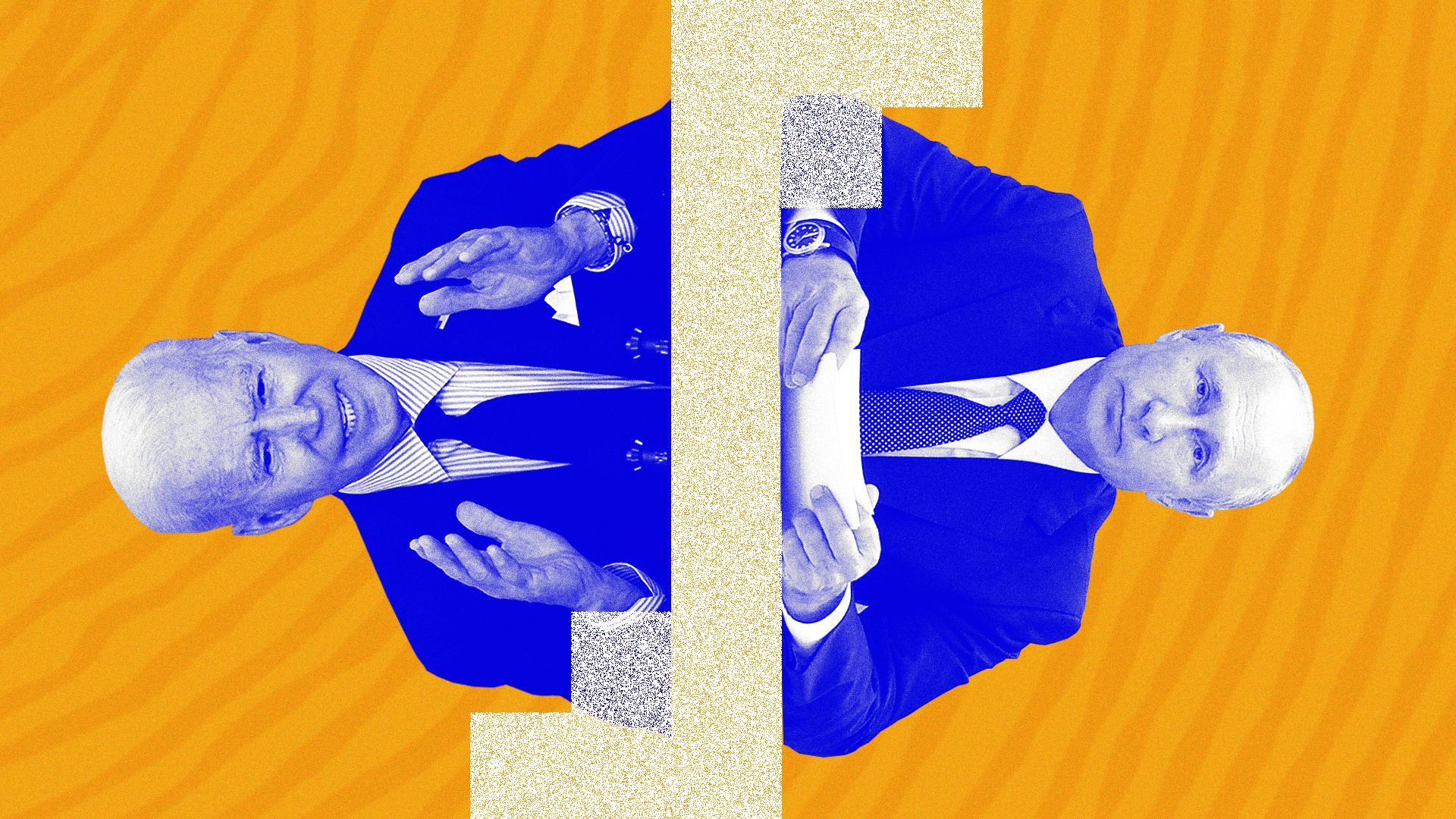 | | | Photo Illustration: Shoshana Gordon/Axios. Photos: Alexei Druzhinin (TASS), Alex Wong/Getty Images | | | | I went through the transcript of Vladimir Putin's lengthy interview with NBC News over the weekend. Some things that jumped out at me beyond the newsy headlines. - Putin said that "despite all of these niceties" of Biden consulting allies before seeing him, the U.S. would make its own decisions on its relations with Russia.
- Putin turned Biden's desire for "predictability and stability" on its head, claiming it was the U.S. that was constantly pushing regime change (as in Syria or Libya) or making sudden policy changes (as in Afghanistan), while Russia defended the "stable" status quo.
- Putin said Biden's extensive political experience presented "some advantages, some disadvantages" for him, but "there will not be any knee-jerk reactions" and "we will be able to comply with certain rules of engagement, certain rules of communications and will be able to find points of contact and common points."
- Putin denied involvement in just about everything he has been accused of — election interference, cyber attacks, political assassinations — and quipped that he was surprised no one had accused him of "provoking the Black Lives Matter movement."
- Putin dismissed claims the Chinese government was committing genocide and the idea that Beijing posed a long-term threat to Russia: "We do not believe that China is a threat to us. China is a friendly nation. It has not declared us an enemy, as the United States has done."
- Putin refused to say Alexei Navalny's name, and also refused to say whether he'd leave prison alive.
Go deeper: U.N. ambassador Thomas-Greenfield tells Axios Putin summit will be tough |     | | | | | | 7. Stories we're watching | 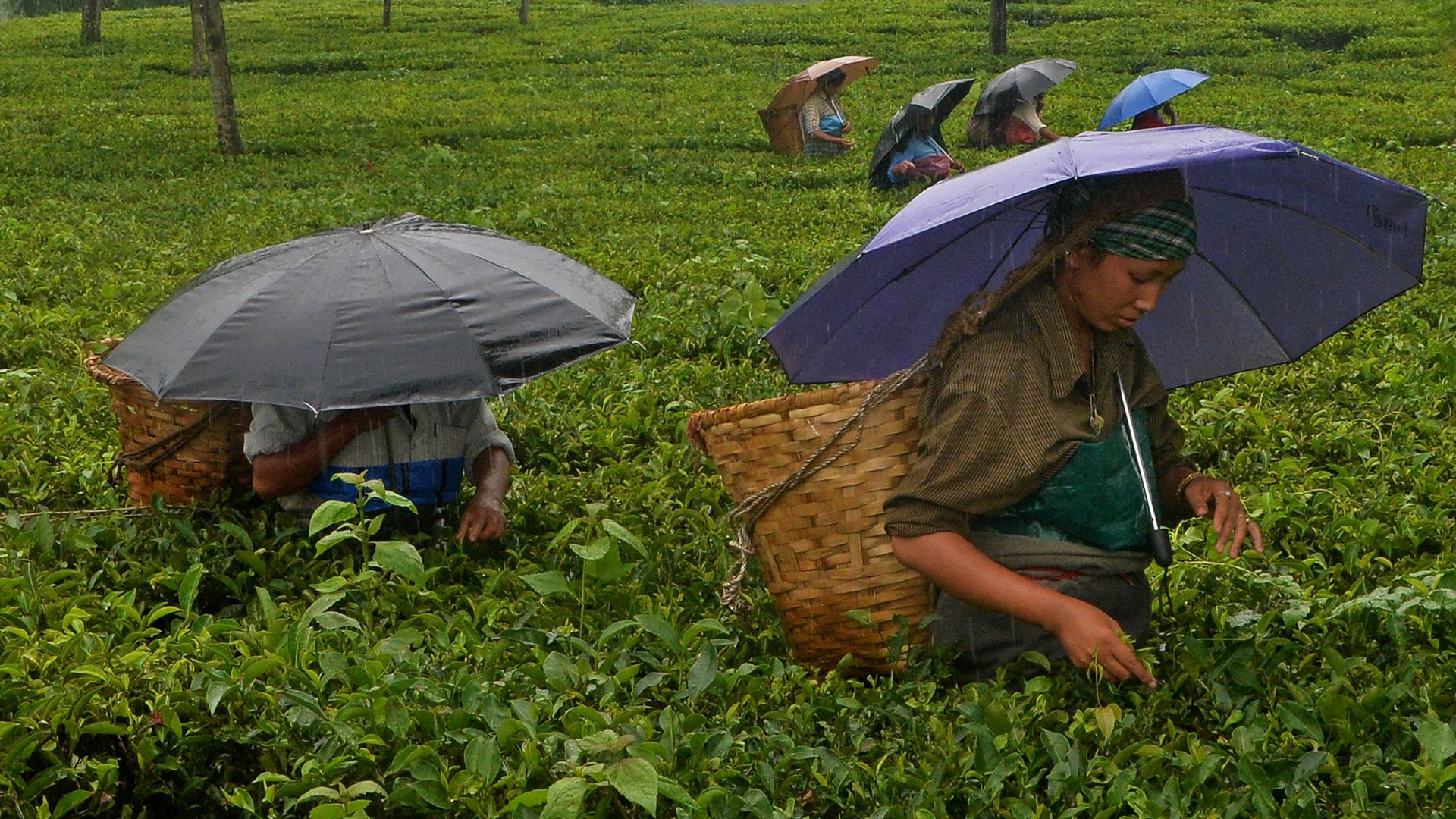 | | | Plucking tea leaves on a rainy day in Rohini, India. Photo: Diptendu Dutta/AFP via Getty | | | - Biden invites Merkel to White House
- Hong Kong to censor movies under China's national security law
- Pentagon sends military aid to Ukraine
- Nicaragua detains more Ortega critics
- In photos: Biden meets Queen Elizabeth
- Biden backs Tokyo Olympics
- Iran regains UN voting rights
Quoted: "Christian. Eriksen. Christian. Eriksen." — A chant from supporters of both Finland and Norway after Danish star Christian Eriksen suffered cardiac arrest during their match on Saturday. He is in stable condition. |     | | | | | | A message from Equinor | | Equinor aims to accelerate the energy transition | | | 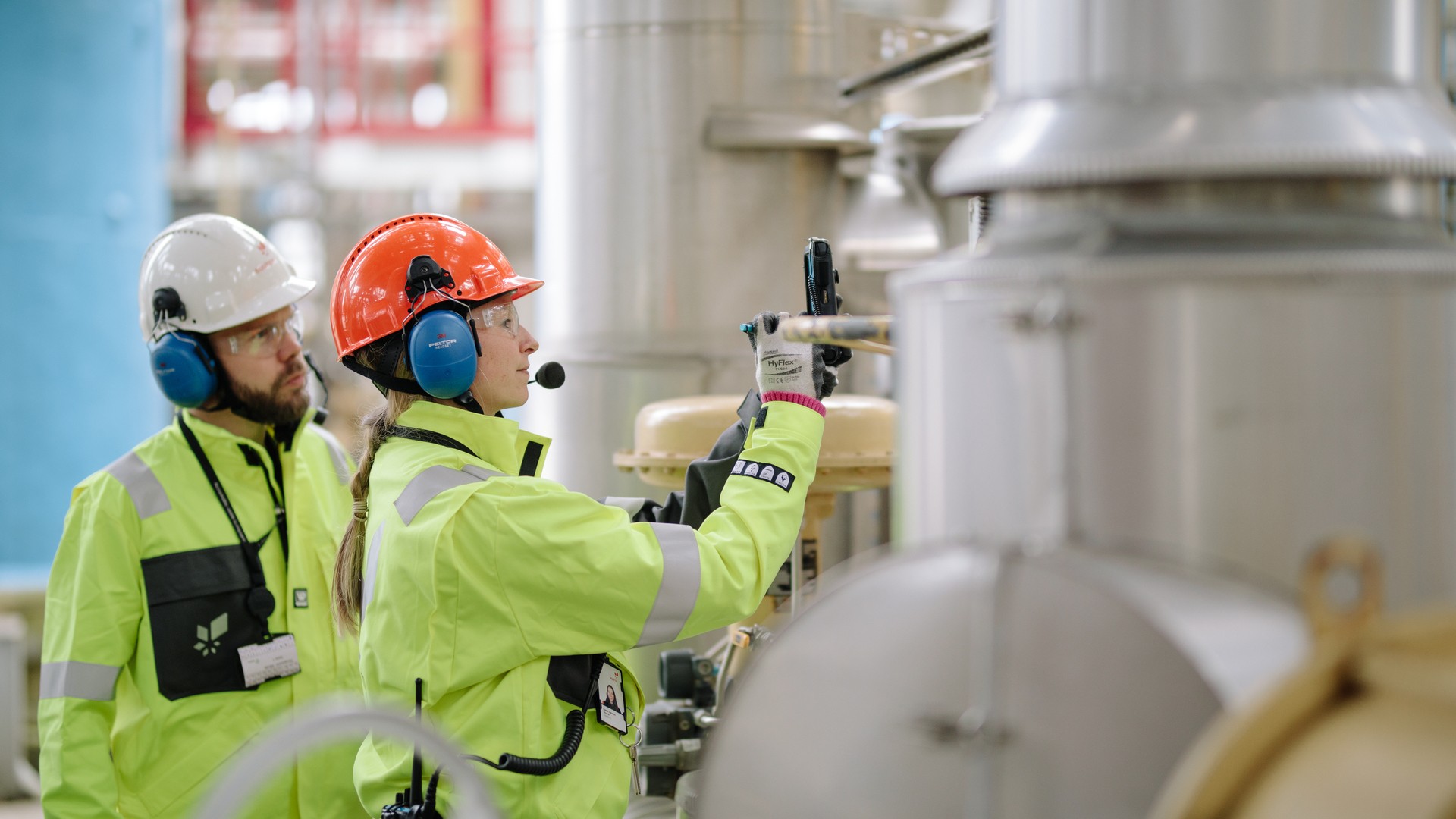 | | | | The world needs energy — but it must be affordable, reliable, and accessible. What Equinor is doing: Growing their portfolio in renewable energy and cutting emissions. They're also planning to power over 1,000,000 homes in New York with renewable energy. More about Equinor. | | | | Answer: Hong Kong (purple pin) and Shenzhen (red pin). |  | | The tool and templates you need for more engaging team updates. | | | | | | Axios thanks our partners for supporting our newsletters. If you're interested in advertising, learn more here.
Sponsorship has no influence on editorial content. Axios, 3100 Clarendon Blvd, Suite 1300, Arlington VA 22201 | | | You received this email because you signed up for newsletters from Axios.
Change your preferences or unsubscribe here. | | | Was this email forwarded to you?
Sign up now to get Axios in your inbox. | | | | Follow Axios on social media:    | | | | | |












No comments:
Post a Comment